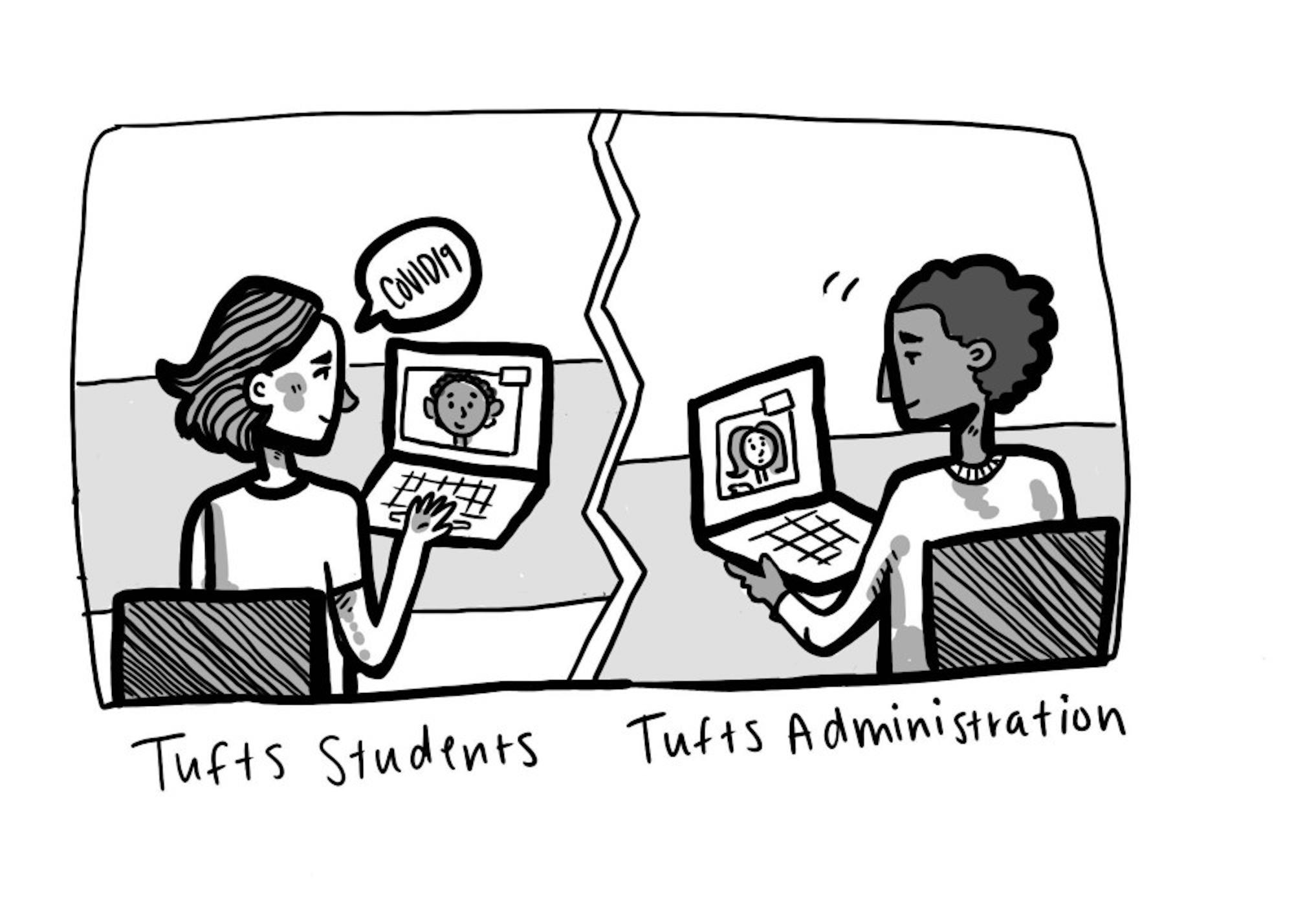Since the university’s March 10decision to suspend in-person classes for the remainder of the semester, our community dispersed across the globe to commence online learning. As a result, our academic and social environments immensely changed, thus requiring rapid adaptations from students, faculty and the administration. As our community enters the final month of classes, we must acknowledge the university’s important work to respond to student input and efficiently move our university online while remaining empathetic to the ongoing issues of the new system.
Due to the unprecedented nature of this crisis, it was to be expected that the university's response would contain imperfection; however, as students voiced their perspectives on issues, our university in large part responded with flexibility and empathy. After theannouncement to hold a virtual commencement ceremony,students immediately voiced their valid feelings and concerns surrounding the issue.Students of all classes emphasized the value of an in-person commencement in recognizing the hard work of graduating seniors and circulated a petition to reschedule commencement that gained over 4,800 signatures.Within five days, the administrationresponded to concerns, voicing its acknowledgement of student sentiments and the subsequent decision to hold an in-person commencement when safe to do so. The administration deserves commendation for altering decisions that did not reflect the views of the student body and prioritizing student voices in the context of drastic change. This achievement proves that students’ voices remain relevant and powerful in shaping university policy, setting a precedent for future active responses to student voices and actions based on values of kindness and respect.
The faculty and administration again demonstrated their receptiveness to student needs in their decision to institute the exceptional pass/fail policyfor undergraduate students.Prior to this decision, students aggressively urged the administration to consider this policy and act with empathy and equity, reaching out to university higher-ups and creating a petition for Tufts to implement a progressive pass/fail option. Again, our university acted with open ears to student voices; ultimately, the faculty arrived at the decision to implement the exceptional pass/fail policy. In this form, it offered students greater autonomy in light of the implications of this crisis and fully recognized the importance of empowering students to make decisions based on their unique circumstances. Thus, by listening to student voices, the university removed a considerable degree of stress during this already anxiety-ridden time.
Moreover, the university has exemplified a commendable receptibility to student feedback in the past weeks. This line of thinking is intensely important, and we urge the university to continue to exercise this philosophy as we move forward; many issues, in large part academic, remain an opportunity for the university to again actively respond to students as they adjust to home life and deal with the emotional implications of the current global pandemic. In this form, the university must require that professors implement policies that offer increased support and flexibility to students affected by time differences, inconsistent internet access or other home stressors.
With inevitably different schedules and responsibilities at home,some students are unable to focus as intently in class and complete materials in the expected depth. Sophomore Jiamin Li from Fuzhou, China told the Daily of her difficult academic experiences as a consequence of the crisis.
“I find it difficult to engage with the reading materials in depth without facilitated discussions with my peers about the readings,” Li said.
To compound these issues, despite the library's recent release of almost half its collection as e-books, Li also experienced problems accessing library resources remotely for research projects.
“The scan & delivery service is currently suspended at Tisch Library, [and] interlibrary loan service is not functioning," Li said. "Although there is the option for requesting e-books, I’m unsure about the time process for the requests, in addition to the fact that many sources are not in e-book formats."
The exceptional pass/fail system alleviates some burden caused by the move to online classes; however, issues like Li described — the less engaging nature of online lectures, internet inconsistency and time changes — prevail as new academic challenges. To combat the lack of in-person classes and resources, the university should mandate that all professors fill this resource void with supplementary materials, including recorded lectures or lecture notes and relevant reading materials emailed or posted on Canvas.
These easily accessible materials would also aid in studying for final exams under such stressful, unique circumstances. However, to further support students in studying for these important exams, the university must implement a policy requiring professors to offer more flexibility for final exams. In this form, finals should be available for a large time window, so students can complete exams at an open time given time zone differences and personal situations. Additionally, Tufts should ensure that online platforms can accommodate large volumes of test-takers and lines of communication remain open during exam periods in the event that students encounter sudden technological issues. Moreover, it is critical that Tufts account for these personal and technological problems in order to promote inclusivity and student success, regardless of physical location.
By doing so, our university continues its recent trend of considering student feedback on the unprecedented conditions affecting our school, community and world. While this action should fall on our university, we also call on professors to implement these methods of addressing academic needs even in the event of the university’s failure to do so. Now more than ever, the student body needs the support of its university and professors — and this situation remains an opportunity for Tufts and its faculty to set an example as a supportive, receptive collective for academic institutions across the nation while cultivating an academic environment of open-mindedness, empathy and togetherness for its own community.






